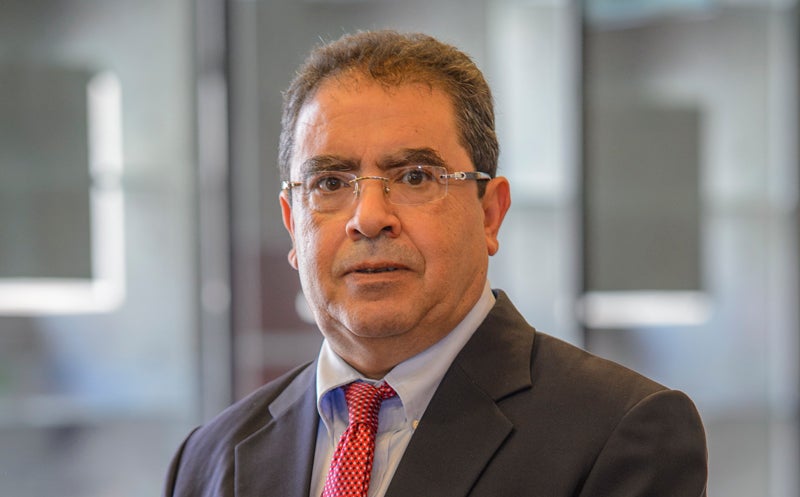News
HBKU is a Knowledge hub to Face Today's Cyber Threats
03 Feb 2019Dr. Mounir Hamdi, Founding Dean of the College of Science and Engineering at Hamad Bin Khalifa University in Qatar, talks about how cyber attacks could cost the world $6 trillion a year and lead to widespread conflict
The World Economic Forum ranks the large-scale breach of cybersecurity as one of the five most serious global risks, following a dramatic spike in cybercrime in recent years.
Indeed, one of the world’s most innovative cybersecurity operations leaders, the Herjavec Group, predicted that cyber attacks will cost the world $6 trillion annually by 2021. They even suggest that conflict could be ignited by the heightened importance of cybersecurity.
It is a global problem that has already reached critical status, with even the world’s largest economic entities coming under attack. The most notable cases in recent years include that of Yahoo in 2014, which saw the private data of 500 million users exposed – demonstrating that even tech conglomerates are not immune to this phenomenon. And, in recent weeks, there have been cyber attacks on several major US newspapers, including the Los Angeles Times, Chicago Tribune and Baltimore Sun, while private data was stolen from hundreds of German politicians, including Chancellor Angela Merkel.
Of course, a cyber attack also led to the onset of the blockade on Qatar, as a hack attributing false statements to His Highness the Amir led to fake remarks being aired on several news networks across the Gulf region, sparking a diplomatic crisis that has yet to be resolved.
Preventing cyber attacks is inherently challenging, but we can reduce the threat by ensuring there are multiple lines of defense in place to protect us in case of security control failures. Artificial Intelligence (AI) techniques are also being used to proactively secure digital assets.
These measures are showing promise, but to be effective in a world of constantly evolving threats, considerable research is required. The cybersecurity faculty and students at Hamad Bin Khalifa University (HBKU) work on these very topics. Their ideas and research help to secure data and systems in both the private and public sectors.
 HBKU’s College of Science and Engineering began a unique cybersecurity graduate program three years ago. It is one of very few such programs in the world, and it provides students with comprehensive, state-of-the-art training, while also giving them hands-on experience of working on real-world projects. We are equipping our students with advanced knowledge and skills required to answer the global call for Information Security professionals.
HBKU’s College of Science and Engineering began a unique cybersecurity graduate program three years ago. It is one of very few such programs in the world, and it provides students with comprehensive, state-of-the-art training, while also giving them hands-on experience of working on real-world projects. We are equipping our students with advanced knowledge and skills required to answer the global call for Information Security professionals.
Technology is advancing at a rapid rate and, while this provides many benefits to society, it also leads to a substantial increase in vulnerability. As more and more devices are connected to the internet, the potential for cyber attacks is also increasing, so it comes as no surprise that they are escalating both in size and frequency.
There are several widely known preventative measures that can be taken to mitigate risk, such as guarding passwords, not leaving computers open, downloading the latest anti-virus software, and not downloading files if users are unsure about the sender.
At a more advanced level, ensuring that research is aligned with current technologies is key to thwarting these threats, and HBKU organizes numerous events that enhance understanding and help the public stay safe online. The HBKU Winter Program is geared towards undergraduate students, and aims to raise awareness about online security.
Within the College of Science and Engineering and the Cybersecurity and Innovation Laboratory, we are currently addressing several challenges that are crucial to Qatar - and for the security community as a whole - including businesses and government organizations.
We provide innovative solutions that involve networking security, end-point protection through authentication mechanisms, and the use of drones to defend critical infrastructures.
The avionics industry is facing a critical security problem. Avionics are electronic systems used on aircraft, man-made satellites and spacecraft, and we are using a range of methods and expertise to tackle this problem, such as AI, Machine Learning, Sensory Hardware, scientific visualization and networking.
Because of the expertise we possess and the opportunities we offer in this field, HBKU has become a reference institution for students who want to embrace an exciting profession and make their mark in the field of cybersecurity.
We have some of the most experienced faculty in Qatar and the region, and they are training students to become experts in this field. We are proud of the role we are playing in tackling this global problem – yet there is always more to accomplish.
